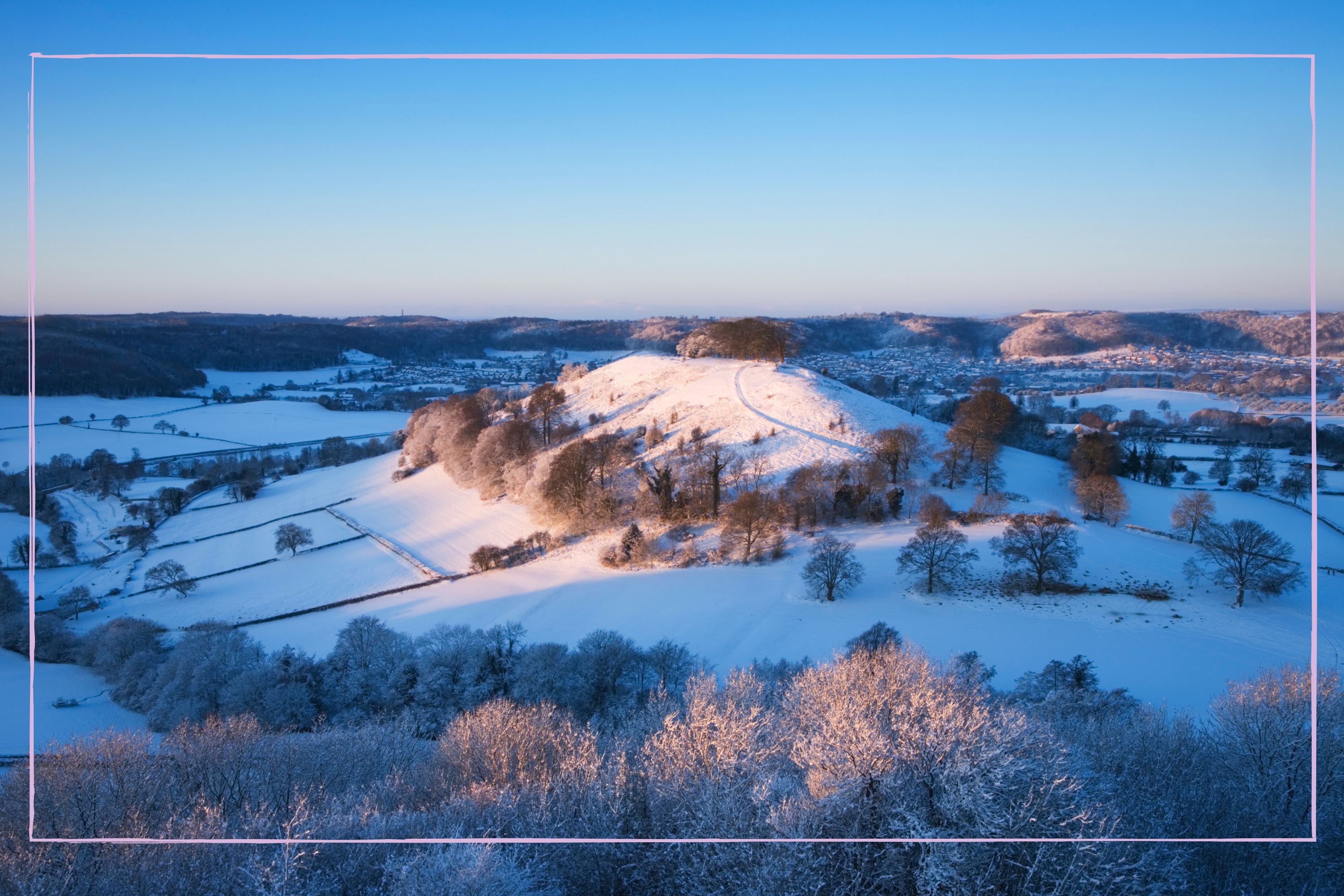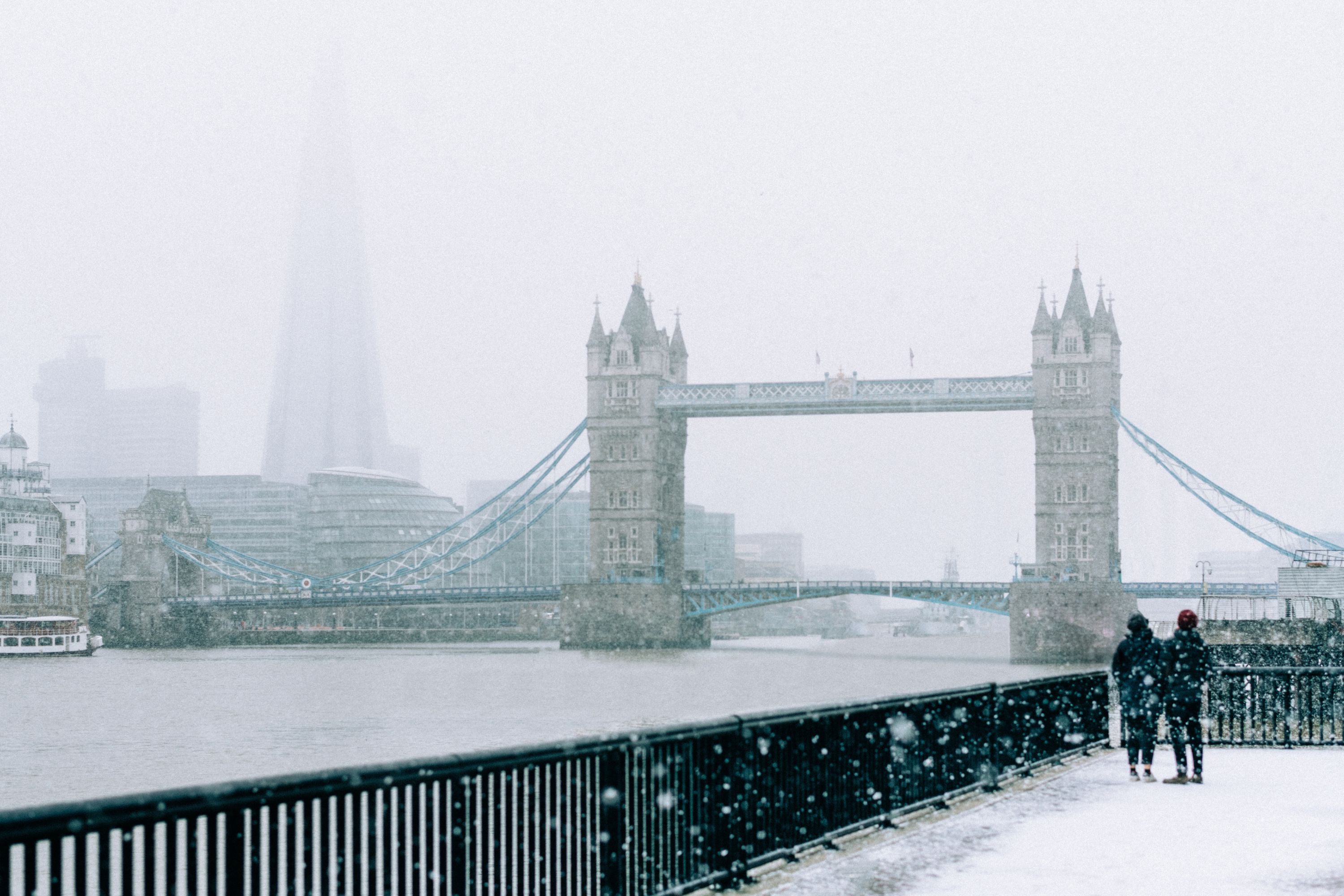Will it snow in the UK in 2024? Latest snow forecast
We look at the weather predictions for the UK to find out when it will snow this year


When will it snow in the UK is the question many families would like the answer to. Kids up and down the country are hoping for a day of sledging, while parents are bracing themselves for potential school closures.
With the news that snow days are not only fun for kids but actually great for their health too, families have had even more reasons to look skyward and hope for snowfall. Many have been disappointed in recent weeks as the weather turned decidedly milder, but winter isn't over yet and forecasters have suggested that more snow could be on the horizon.
We've taken a look at seasonal trends and Met Office predictions to find out the latest verdict on when it will next snow in the UK this winter. If you haven't already, you might want to stock up on kids' winter boots, waterproof gloves and puddle suits to make the most of the wintry spell, before they get stowed away until next year.
Will it snow in the UK in 2024?
Many areas of the UK have already seen snow in 2024, and the Met Office has now forecast more snow in the coming days. On Tuesday 6 February, the weather service said, "Cold air moving in from the north will see temperatures fall for many this week, increasing the chance of wintry hazards and a warning for snow issued for some."
The cold air will bring rain to much of England and Wales, while several National Severe Weather Warnings have been issued for snow across the UK, the chances of which increase later in the week.
Rain, strong winds, sunshine and snow - there's plenty of weather in the week ahead ☔🌬️🌤️Find out the latest details below ⬇️ pic.twitter.com/jZmBlXJuPAFebruary 5, 2024
With this in mind, Amy Shaw, National Network Manager at National Highways, said: "Freezing conditions bring hazards such as snow and ice, so take every possible step to understand your journey in advance and allow lots of extra time when travelling to prepare for the unexpected.
"It is therefore always important to plan ahead for your journey, check the weather forecasts, and if weather conditions become challenging, adjust your driving behaviour and take extra care."
Parenting advice, hot topics, best buys and family finance tips delivered straight to your inbox.
The Met Office explains that for snow to fall, the air needs to be cold enough and there needs to be a supply of moisture. To get cold air in the UK, there needs to be winds from the north or east, but the most common wind direction in the UK is south-westerly - making snow a rare occurrence in most areas.
If there is an easterly wind, it either needs to meet a rain-bearing weather front and turn it into snow, or for the cold air to pick up enough moisture from its short journey across the North Sea to form showers.
When is it going to snow in the UK?
The Met Office explains that from Thursday 8 February, there’s an increased chance of snow in some parts of the UK. At the time of writing, weather warnings for snow are in place until 6am on Friday.
But that's not all, the Met Office's Long Range forecast predicts snow too. For the period of Sunday 11 until Tuesday 20 February, rain and hill snow is predicted in the north and along eastern coasts. In the west and south-west, potential snow is predicted for the period of Wednesday 21 February to Wednesday 6 March.
However, the Met Office explains that snow forecasting in the UK is difficult. Because it’s so cold high up in the atmosphere, most precipitation either starts as snow or supercooled raindrops, but as it falls to earth, it moves through warmer air most of the time and melts into rain.
They add that weather fronts mark the boundary between cold air and warm air, so when a weather system moves in, there will be warm air and moisture wrapped up in it. While we need the moisture for snow to form, the warm air makes it very tricky to forecast.
This is because as the warm air bumps into the cold air, the air mixes together and makes the cold air slightly warmer, and the warm air slightly colder, and so then rain becomes more likely.
Therefore, there’s a fine line between who sees snow and who sees rain - sometimes a fraction of a degree makes the difference - which is why it's unlikely we'll know to expect snow until it is just days away.
Where is it going to snow in the UK this winter?
Snow is predicted to fall across Scotland, Northern Ireland and northern and central England in the next few days. Yellow weather warnings for snow and ice are in place until Thursday 8 February in Scotland, and until Friday 9 February in England and Northern Ireland.
There are also some amber weather warnings in place in central England and north Wales. While a yellow weather warning means the weather will likely cause some low-level impacts (including disruptions to travel), amber warnings mean there is an increased likelihood of impacts from severe weather, and you should consider changing your plans.
Met Office Deputy Chief Meteorologist Chris Almond said: "While there are still lots of details to work out, the initial snow risk looks highest in northern England and Wales from Thursday. 1-2cm is possible to low levels, with 10-20cm possible over the highest ground within the warning area. This snow is likely gradually change to sleet and rain later on from the south."
Will it snow in London in 2024?
London saw a brief dusting of snow early on in January 2024, but the Met Office has not forecast any more snow for the capital at this stage.
Snow is rare in London, and World Atlas says data from the Met Office has shown "on average, the central parts of London experience less than 10 days of snow or sleet every year...for the few days that it snows in the central parts of London, the snow rarely settles since it melts away extremely fast."
The outskirts of London as well as areas with higher altitudes tend to get more snow, as the urban centre of the capital often has a higher temperature. This causes snow to melt more quickly and makes it unlikely that snowflakes will settle.
The exception to this, of course, was the 'Beast from the East' in 2018, which saw the entire UK experience 10 days of heavy snow in late February.

How much snow does the UK usually get?
According to the Met Office, the UK gets on average 23.7 days of snowfall or sleet a year. The majority of this snow falls on higher ground where temperatures are lower.
In Scotland, the figure is much higher, with snow or sleet falling on 38.1 days out of the year on average. The Cairngorms in Scotland are statistically the snowiest place in the UK, with 76.2 days of snow or sleet falling per year on average.
In contrast, Cornwall is the least likely to get snow, with an average of only 7.4 days of snow or sleet falling a year.
However, because most of this snow does not settle, the number of days the UK sees snow on the ground is much lower. On average, there are 15.6 days a year where snow is on the ground in the UK, compared to 26.2 days in Scotland.
How cold are the temperatures predicted to get in the UK?
Data from the Met Office's UK climate averages shows that from the period of 1991 to 2020 the coldest month of the year on average is January, with an average maximum temperature of 6.66°C and an average minimum temperature of 1.21°C.
Average temperatures in the UK in February by country:
- England - Minimum 1.53°C, maximum 7.78°C
- Scotland - Minimum 0.26°C, maximum 5.95°C
- Wales - Minimum 1.59°C, maximum 7.36°C
- Northern Ireland - Minimum 1.56°C, maximum 7.81°C
Five fun snow facts
- Snow isn't actually white, it's clear - the reason it appears white is because the many sides of the ice crystals reflect the light
- Most snow falls at a speed of between 1 - 4 mph
- Fresh snow absorbs sound waves, which is why it always sounds so quiet after it snows
- The deepest snow ever recorded in the UK was near Ruthin, Wales, in March 1947, when a snow depth of 1.65 metres was recorded
- Every single snowflake has its own unique pattern - no two are the same shape
If you're getting ready for the colder weather, you might want to find out how cold it needs to be for schools to close, and what temperature is too cold to walk your dog.

Ellie is GoodtoKnow’s Family News Editor and covers all the latest trends in the parenting world - from relationship advice and baby names to wellbeing and self-care ideas for busy mums. Ellie is also an NCTJ-qualified journalist and has a distinction in MA Magazine Journalism from Nottingham Trent University and a first-class degree in Journalism from Cardiff University. Previously, Ellie has worked with BBC Good Food, The Big Issue, and the Nottingham Post, as well as freelancing as an arts and entertainment writer alongside her studies. When she’s not got her nose in a book, you’ll probably find Ellie jogging around her local park, indulging in an insta-worthy restaurant, or watching Netflix’s newest true crime documentary.